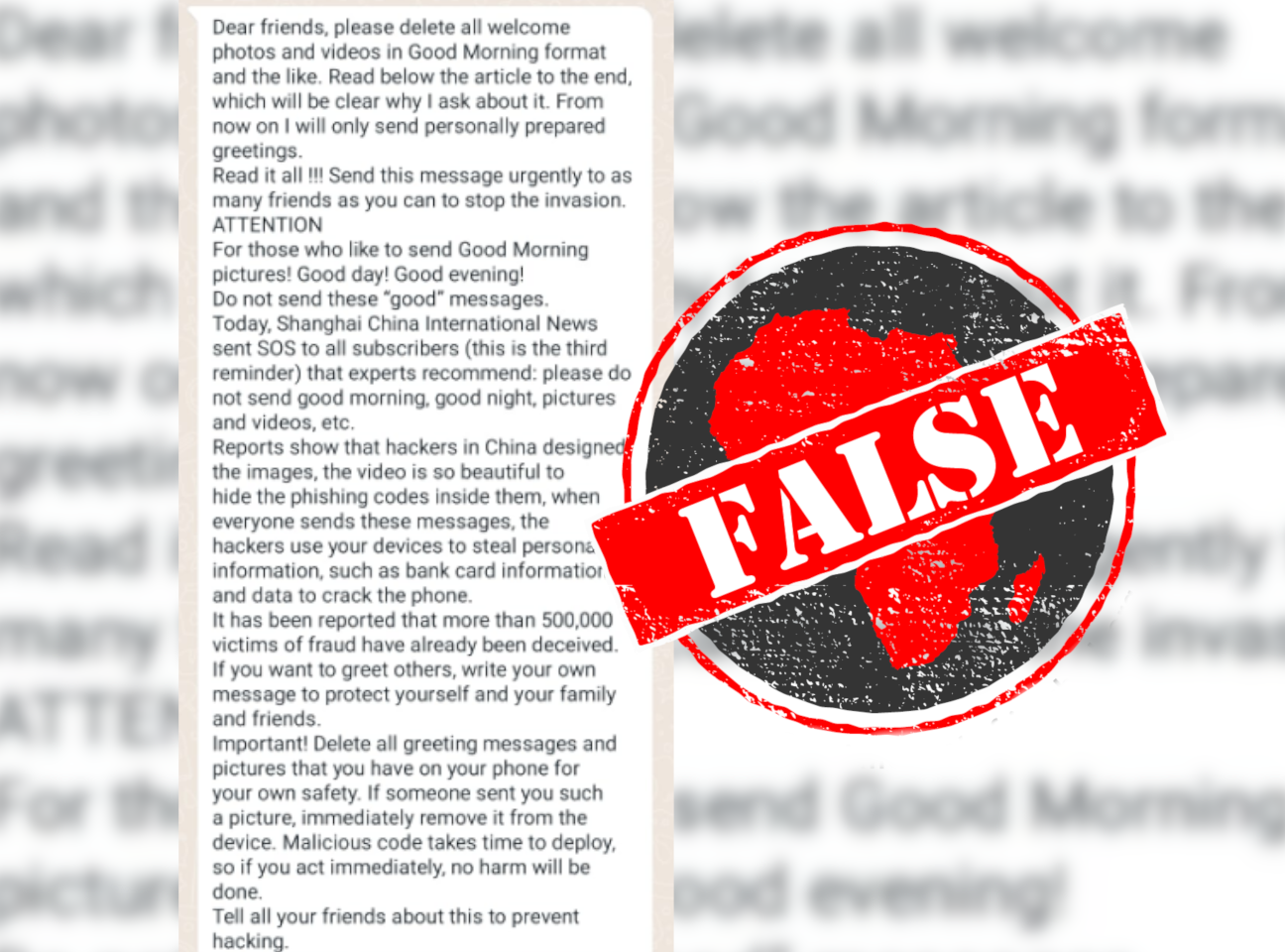IN SHORT: Sending a “good morning” message via WhatsApp is harmless and we can prove it. So don’t fall for this old hoax, which claims that doing this can give hackers access to your personal information.
A claim that has been sent to Africa Check numerous times on our two WhatsApp lines warns readers to stop sending greeting messages.
It says: “Dear friends, please delete all welcome photos and videos in Good Morning format and the like.”
The message asks readers to “read below the article to the end”, then says that hackers in China have designed good morning images and videos so that phishing codes can be stored inside them.
Phishing is a scamming practice used to trick social media or internet users into giving up their personal information. It can lead to crimes like identity theft.
“When everyone sends these messages, the hackers use your devices to steal personal information, such as bank card information and data to crack the phone,” the message warns.
The claim has also been shared on Facebook since 2020 here, here, here, here, here and here, and was shared again in 2021 on the platform.
Africa Check has previously found hoax messages and warnings about viruses on WhatsApp to be false.
But is this claim actually true? We investigated.

No evidence for the claim
The message claims that this warning was reported by the Shanghai China International News, but we could find no trace that such an organisation even exists.
There’s also no official report or blog post about this type of phishing by WhatsApp or any other social media platform.
The claim made in the posts is old and false. It was debunked by other fact-checking organisations in 2020.
How to spot WhatsApp misinformation
There are clues social media users can look out for to see if forwarded claims, like this one, are potentially false.
WhatsApp advises that users look for red flags like spelling errors or grammatical mistakes, if the message is asking for personal information, or if it’s asking you to forward a message.
If this type of message is coming from an unknown number, users should block that number and if it is coming from a friend or family member, users should ignore it and delete it.
To protect yourself against misinformation on the platform, see our guide on five steps to fight fake news and false information on WhatsApp.
Republish our content for free
For publishers: what to do if your post is rated false
A fact-checker has rated your Facebook or Instagram post as “false”, “altered”, “partly false” or “missing context”. This could have serious consequences. What do you do?
Click on our guide for the steps you should follow.
Publishers guideAfrica Check teams up with Facebook
Africa Check is a partner in Meta's third-party fact-checking programme to help stop the spread of false information on social media.
The content we rate as “false” will be downgraded on Facebook and Instagram. This means fewer people will see it.
You can also help identify false information on Facebook. This guide explains how.


Add new comment